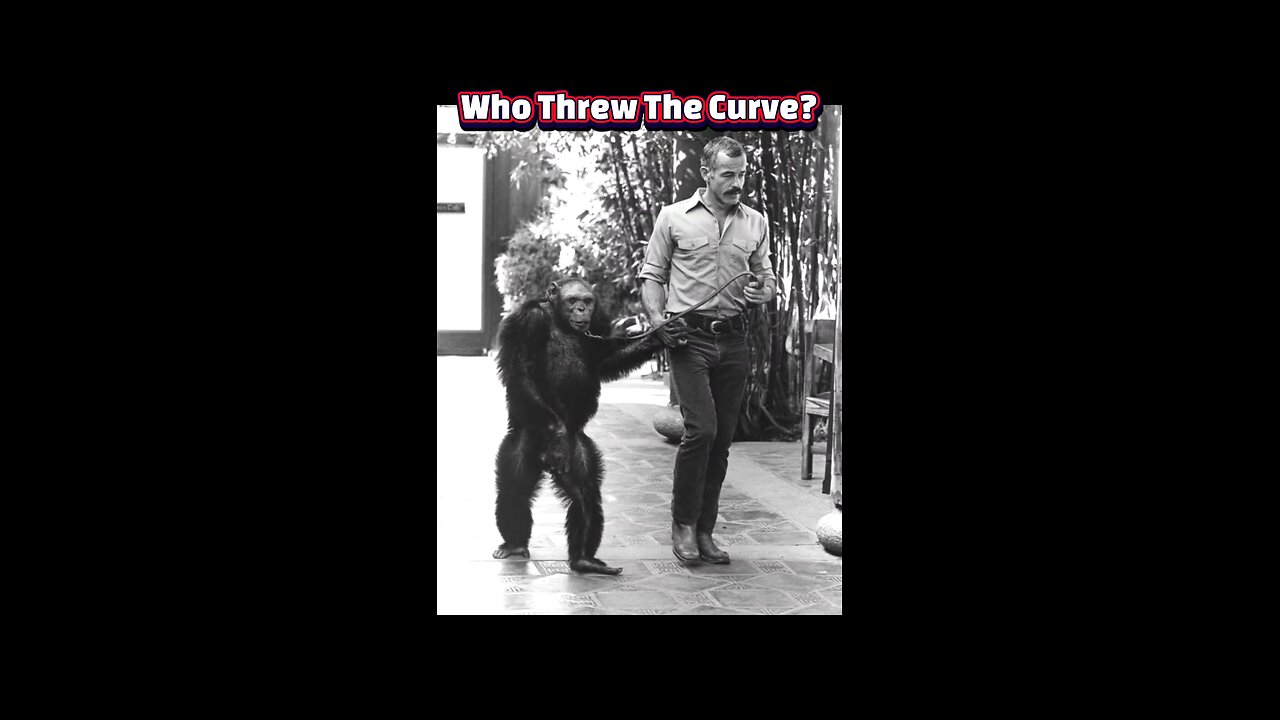Premium Only Content

The Tragedy of Oliver: When Curiosity Becomes Cruelty
#OliverTheHumanzee #ScienceWithoutSoul #WhenWonderHurts #ForgottenLives #CuriosityVsCompassion #TheHumanzeeFiles #EthicsOverExploitation #LessonsFromOliver #humanzee #chimpanzee
In the 1970s, a chimpanzee named Oliver captivated the world—not for his tricks, but for his eerily human traits. He walked upright, had a flatter face, and seemed to prefer human company. People called him the “Humanzee,” a supposed missing link between ape and man.
Oliver was taken from the wild as a baby and sold into entertainment. His handlers paraded him as a scientific marvel. He drank coffee, shaved with his trainer, and even wore suits. But behind the spectacle was a creature stripped of his identity and autonomy.
Scientists poked, prodded, and speculated. Was he a hybrid? A new species? The truth: Oliver was 100% chimpanzee. But that didn’t stop the media from turning him into a sideshow curiosity—less a living being, more a biological riddle to be solved.
When the novelty wore off, so did the attention. Oliver was sold, resold, and eventually ended up in a biomedical lab. Though never experimented on, he spent nearly a decade in a tiny cage, his muscles wasting, his spirit dimming. Forgotten by the same world that once obsessed over him.
It wasn’t until activists intervened that Oliver was rescued and sent to a sanctuary. There, in his final years, he found peace—sunlight, space, and companionship. But the damage had been done. He died in 2012, aged and arthritic, a symbol of misplaced wonder.
Oliver’s story isn’t just about a chimp. It’s about us. About how easily we turn living beings into mirrors for our own obsessions. About how fascination can curdle into exploitation when empathy is absent.
We called him “Humanzee” because he reminded us of ourselves. But instead of honoring that connection, we caged it, sold it, and televised it. We asked, “What is he?” when we should’ve asked, “What does he need?”
In the end, Oliver wasn’t a missing link. He was a missing lesson. A reminder that intelligence, emotion, and dignity aren’t exclusive to humans—and that cruelty often hides behind curiosity dressed as science.
So the next time we marvel at something strange or beautiful, let’s ask: Are we seeing it for what it is—or for what we want it to be? And more importantly, are we treating it with the care it deserves?
-
 1:58:09
1:58:09
Dialogue works
2 days ago $3.65 earnedLarry C Johnson & Paul Craig Roberts: Can peace be imposed on Israel? - Russia and China Step In
29K15 -
 8:10
8:10
Nate The Lawyer
2 days ago $3.04 earnedNY AG Letitia James Pattern | All 3 Mortgages Have False Statements
18.4K20 -
 17:35
17:35
Actual Justice Warrior
1 day agoDMV Workers CAUGHT Selling CDL Tests To Migrants
19K34 -
 13:24
13:24
Dr Disrespect
3 days agoFirst Day of Battlefield 6 with DrDisrespect
81.2K24 -
 2:54:42
2:54:42
Side Scrollers Podcast
21 hours agoEA BANNING “MAGA” Usernames? + Roblox CP Situation Gets WORSE+ CollarGate + More | Side Scrollers
49.3K42 -
 15:09
15:09
GritsGG
17 hours agoSolo Warzone Victory! Shadow Banned!
22.9K1 -
 LIVE
LIVE
Lofi Girl
3 years agolofi hip hop radio 📚 - beats to relax/study to
228 watching -
 12:19
12:19
BlabberingCollector
1 day agoPotter Fans In Frenzy, Keira Knightly Responds To Potter Involvement Backlash | Wizarding World News
22K3 -
 2:56:20
2:56:20
FreshandFit
15 hours agoThe Price Is Right! Fresh&Fit After Hours Edition
211K87 -
 6:45
6:45
The Power of Connection
2 days agoThe Power of Connection : Networking vs. Connecting
19.9K5